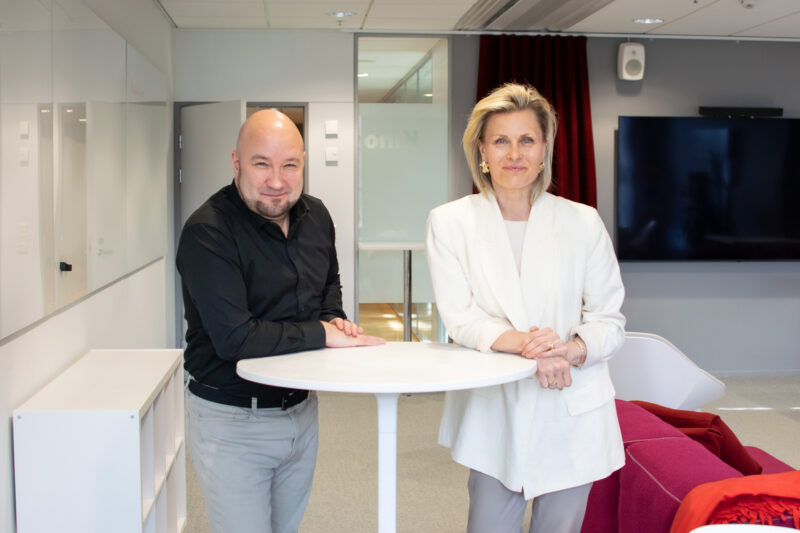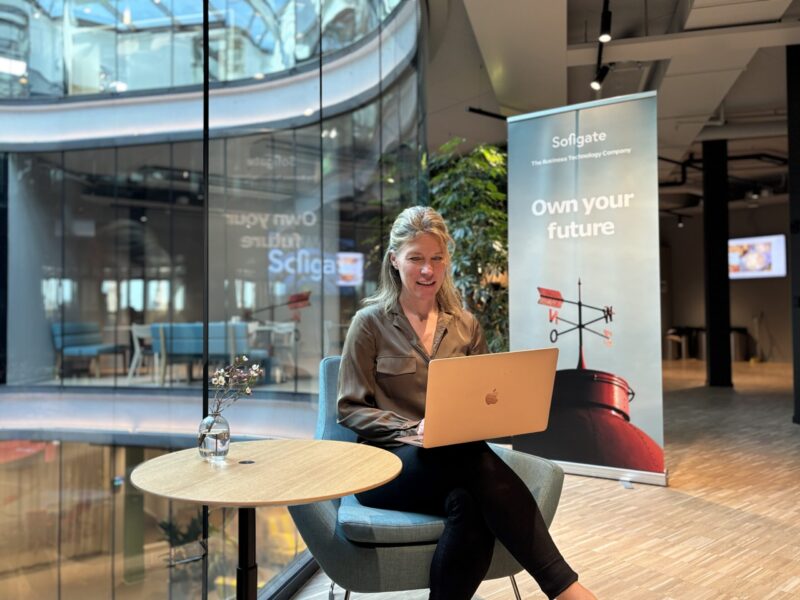Klarna replaces half of its employees with AI – could your company do the same?
AI can replace human labour in a company with industrial processes. But most knowledge workers don’t need to fear for their jobs, argues Sofigate’s Mikko Saari.
Klarna, a Swedish company that develops online payment services, recently announced that it would be cutting its staff drastically. At its peak, Klarna employed 5,000 people, but that number has now fallen to 3,800. In the future, the company expects to be able to manage with only 2,000 employees.
The cuts will be made possible by artificial intelligence. “Not only can we do more with less, we can do much more with less,” CEO Sebastian Siemiatkowski told the Financial Times.
In other words, Siemiatkowski claims that it is possible to more than double the productivity of Klarna’s remaining employees in a short period of time.
Siemiatkowski’s words carry the typical menace of a CEO of a company planning an IPO. Nevertheless, the company’s plans raise two questions.
Can AI really double the productivity of knowledge workers? And if so, why aren’t all companies planning to make a similar leap in productivity?
Ford ahead, Klarna behind
I don’t know Klarna’s business in detail, but it’s likely that a significant proportion of the company’s staff have so far worked in marketing and customer service roles and, in particular, in platform development – in effect, coding.
Klarna reported a profit for the first time in the first half of this year. Prior to that, the company had been making a drastic loss for years. Like a typical growth company, hundreds of millions of investors’ money have been spent on hiring staff and gaining market share.
At the same time, Klarna has probably invested in designing and shaping its business in such a way that a productivity trap is possible. Business processes have been standardised and designed to be scalable so that much of the human work can be outsourced to AI.
In other words, it is likely that Klarna will now use AI to produce code, test code, detect errors and certainly teach employees to be better coders. Using the open business technology model, the BT standard, this could be described as Klarna saving costs on the right-hand side of the BT model and investing them in developing the left-hand side of the model.
It is a modern version of the process that Henry Ford implemented in his car factories just over a century ago. By breaking down the manual labour involved in making cars into a series of simple, assembly-line tasks, Ford multiplied the productivity of his factories.
Much of knowledge work is not industrial
It remains to be seen how Klarna will achieve its goals. What is certain is that many companies in the IT sector will try to learn from it.
But the vast majority of IT work is far from industrial. Much of specialist work cannot be broken down into automated, assembly-line-like routines in the same way as coding or customer service. Nor is it possible to automate on the scale of Klarna in companies that produce many different products and services, and where the number of different business processes is thus multiplied.
Of course, this does not mean that AI will not significantly increase the productivity of all knowledge work. In most companies, it will simply do so in a more human-oriented way, so that employees find routines in their own work that they can outsource to AI. By sharing best practices, employees can simultaneously boost the efficiency of their colleagues and the organisation as a whole.
The good news for knowledge workers is that the exploratory adoption of AI, driven by their own needs, will not turn them into easily replaced robotic assembly-line workers. Rather, it makes them irreplaceable.
Read more:
Strategy is about letting go – but what should a company let go of?
Don’t ask what AI could be used for – ask how
Author
Mikko Saari leads Sofigate’s Business Technology Studio and Operator business, which combines end-to-end IT services, business technology management services and world-leading platform solutions for mid-sized growth companies.


